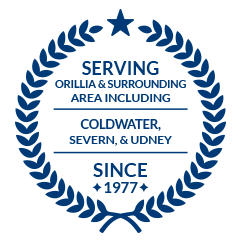How Much Is Landlord Insurance
If you’re renting out a property in Ontario, you’ve probably asked: How much is landlord insurance? It’s a smart question and an important one. Whether you own a single condo or multiple residential units, landlord insurance protects your investment against the unexpected.
At Ron Johnston Insurance, we believe understanding your costs upfront is just as important as understanding your coverage. Here’s a clear breakdown of what landlord insurance typically costs in Ontario, what influences your premium, and why skipping it is never worth the risk.
Related Article: What Does Landlord Insurance Cover
What Is Landlord Insurance?
Landlord insurance covers you when you rent out a residential property. Unlike a standard homeowner’s policy, landlord insurance is designed specifically for non-owner-occupied homes. It protects you from:
- Damage to the building
- Loss of rental income
- Liability claims (e.g., tenant injuries)
- Vandalism or theft
It’s essential coverage if your property is occupied by someone else, because your standard home policy likely won’t cover rental activity.
Related Article: Is Tenant Insurance Mandatory in Ontario?
Average Cost of Landlord Insurance in Ontario
The cost of landlord insurance in Ontario typically ranges from $800 to $2,500 per year, depending on several factors.
- Single-unit condo or townhouse: $800–$1,200/year
- Detached home: $1,000–$1,800/year
- Multi-unit property: $1,500–$2,500/year
This translates to roughly $70 to $200 per month, which can often be written off as a rental expense on your taxes.
What Affects the Cost of Landlord Insurance?
Your exact premium depends on a mix of property details, tenant factors, and policy options. Here’s what insurance companies consider:
1. Property Type and Value
A newer, well-maintained property will generally cost less to insure than an older home with outdated systems. The size, age, and construction materials all matter.
2. Location
Is the property in a high-crime area? Is it prone to flooding or severe weather? Your postal code plays a role in risk—and rates.
3. Tenant Profile
If your tenants are students or short-term renters, your premiums may be higher than if you’re renting to long-term tenants with stable employment.
4. Rental Type
- Long-term rental: Lower risk, lower cost
- Short-term/Airbnb rental: Higher risk, may require a separate or commercial policy
5. Coverage Limits and Deductibles
More coverage = higher premiums. But higher deductibles = lower premiums. The balance depends on your comfort with risk.
6. Claims History
If you’ve filed previous claims on rental properties, expect your rates to reflect that history.
7. Security Features
Homes with security systems, upgraded locks, or fire alarms may qualify for lower premiums.
Related Article: What Does Tenant Insurance Cover in Ontario?
What Does Landlord Insurance Cover?
A standard landlord insurance policy typically includes:
- Dwelling Coverage: Covers physical damage to the structure from fire, wind, hail, vandalism, or other covered events.
- Liability Protection: If someone is injured on your property and sues you, liability coverage helps cover legal fees and settlements.
- Loss of Rental Income: If your unit becomes uninhabitable due to a covered loss (like fire or flooding), this pays for lost rent during repairs.
- Optional Add-ons:
- Flood insurance (not typically included)
- Earthquake coverage
- Vandalism or malicious damage by tenants
- Appliance or equipment breakdown
How to Lower the Cost of Landlord Insurance
Bundle Policies
If you own multiple properties or also need auto, home, or life insurance, bundling your policies with one provider can save you 10% or more. Insurers often offer discounts for customers who combine different types of coverage, making bundling a simple way to cut costs without sacrificing protection.
Increase Your Deductible
Choosing a higher deductible — the amount you pay out of pocket before insurance kicks in — can reduce your premium. This strategy works best if you have a financial buffer and can comfortably handle small repairs or claims without filing.
Improve Property Safety
Insurance providers reward landlords who invest in safety. Installing deadbolts, monitored security systems, smoke detectors, fire extinguishers, and updated electrical or plumbing systems can all help reduce the risk of incidents and your insurance rate along with it.
Stay Claims-Free
Filing multiple claims over time can drive your premiums up. If an issue is minor, consider covering the cost yourself instead of filing a claim. This keeps your claims history clean and shows insurers that your property is low-risk.
Work With a Brokerage
Working with an independent brokerage like Ron Johnston Insurance gives you access to quotes from multiple providers, not just one. This means you get the best combination of coverage, price, and service. A broker can also help identify discounts or policy features that suit your exact situation.
Is Landlord Insurance Mandatory in Ontario?
No, landlord insurance isn’t legally required, but most mortgage lenders will require it if you’re financing the property.
Even if you own the home outright, going without landlord insurance puts you at serious risk. Just one fire, lawsuit, or flood could cost more than a decade’s worth of premiums.
What’s the Difference Between Homeowners and Landlord Insurance?
Here are the key differences:
- Occupancy: Homeowners insurance is for owner-occupied homes, while landlord insurance is for tenant-occupied properties.
- Personal Contents: Homeowners insurance covers your belongings. Landlord insurance does not, your tenant need their own renters policy.
- Rental Income Protection: Homeowners insurance does not cover lost rent. Landlord insurance can compensate you if the property becomes uninhabitable.
- Liability: Landlord policies include protection for tenant-related liability, which standard home policies do not.
If you’re renting out even part of your home, let your provider know. You may need to switch to or supplement with a landlord policy.
Related Article: Understanding Liability Limits in Commercial General Liability Insurance
Protect Your Investment
The cost of landlord insurance is small compared to the risk of going without it. Whether you’re a new landlord or managing a growing portfolio, the right policy gives you peace of mind and protection when things go wrong.
At Ron Johnston Insurance, we simplify the process of getting landlord insurance. We’ll help you compare options, understand your coverage, and get the best rate possible without the stress or confusion.
Ready to protect your rental property? Contact us today for a fast, personalized quote and expert advice you can trust.
- September 2025
- August 2025
- July 2025
- June 2025
- May 2025
- April 2025
- March 2025
- February 2025
- January 2025
- December 2024
- November 2024
- October 2024
- September 2024
- August 2024
- July 2024
- June 2024
- May 2024
- April 2024
- March 2024
- February 2024
- January 2024
- December 2023
- November 2023
- October 2023
- September 2023
- August 2023
- July 2023
- June 2023
- May 2023
- April 2023
- March 2023
- February 2023
- January 2023
- November 2022
- October 2022
- September 2022
- August 2022
- July 2022
- June 2022
- May 2022
- November 2021
- January 2018
- December 2017
- November 2017
- October 2017
- September 2017
- August 2017
- July 2017
- May 2017
- April 2017




